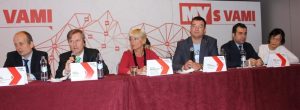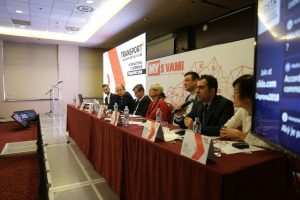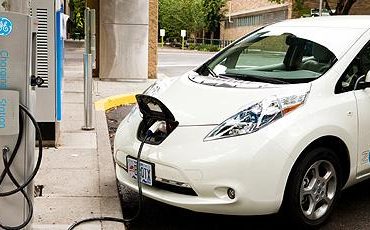On September 26, the international conference TRANSPORT 2018 took place in Žilina, Slovakia. This event was organised by the PETIT PRESS and M KREO agency on the theme “ROUTE to the FUTURE”, with the emphasis on addressing the challenges ahead for Slovakia in all areas of transport. This conference was held in the form of highly informative keynote presentations and thought-provoking panel discussions, focusing on current trends and developments in road, rail and air transport, innovations and visions in transport in Slovakia and the world. This international conference brought together experts and stakeholders in the field of transport from academic, public and private sectors to exchange and share their experience and insights on trends impacting mobility in future. ERAdiate was represented at this event by Tatiana Kováčiková and Ghadir Pourhashem as speakers in the panel discussion oriented on “Innovations in Transport- both Globally and in Slovakia”.
Tatiana in this conference discussed the importance of Big Data in the transport sector. Her presentation focused on “Big Data paving the way for Connected and Autonomous Vehicles (CAVs)”. She addressed the challenges which will occur by the end of 2022 in road transport in terms of type, use and volume of data, as it is anticipated that there will be 125 million connected cars on global roads. “CAVs will generate Big Data to detect the road and traffic conditions and take appropriate decisions to drive without human intervention. The advancement of CAVs technologies, as well as the significant increase in the number of personal mobile devices, sensors, controllers and amount of “crowdsourced” information, will create new dynamics of transport data environment” said Tatiana. “However, to fully use a potential of the Big Data, there are still challenges to be addressed, such as data ownership, data quality, legal concerns and privacy issues and lack of standards”.
In his presentation, Ghadir also focused on the role of emerging technologies and mobility trends in the future of smart & sustainable cities. He tried to answer the question “Why is it important to address technological and societal trends simultaneously in Urban and mobility planning?”. In the panel discussion, to respond to these challenges, he also discussed best practices concerning the impact of emerging technologies and mobility trends on quality of life for citizens and gender mobility equality that can be offered through Demand-based services and Seamless and efficient mobility. However, Smart mobility are considered as a powerful tool to achieve a more sustainable future in our cities but transport planners should be aware that the success of new mobility solutions and emerging mobility technologies depends on the level of involvement of citizens and planning based on their changing needs rather than based on strategic perspectives.
Further information can be found here.





